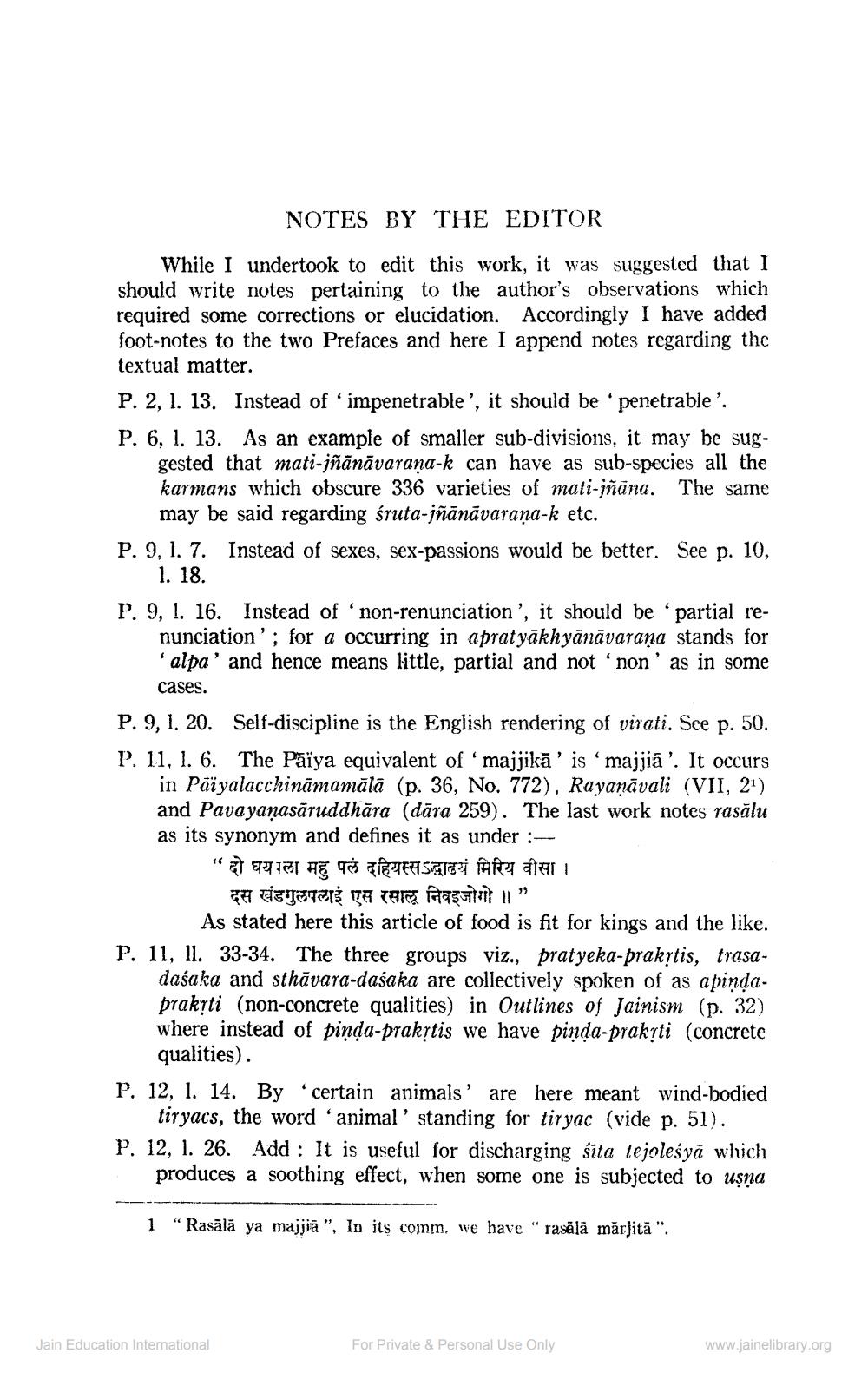________________
NOTES BY THE EDITOR
While I undertook to edit this work, it was suggested that I should write notes pertaining to the author's observations which required some corrections or elucidation. Accordingly I have added foot-notes to the two Prefaces and here I append notes regarding the textual matter.
P. 2, 1. 13. Instead of 'impenetrable', it should be 'penetrable '.
P. 6, 1. 13. As an example of smaller sub-divisions, it may be suggested that mati-jñānāvaraṇa-k can have as sub-species all the karmans which obscure 336 varieties of mati-jñāna. The same may be said regarding śruta-jñānāvaraṇa-k etc.
P. 9, 1. 7. Instead of sexes, sex-passions would be better. See p. 10, 1. 18.
"
P. 9, 1. 16. Instead of non-renunciation', it should be partial renunciation'; for a occurring in apratyākhyānāvaraṇa stands for 'alpa' and hence means little, partial and not 'non' as in some
cases.
P. 9, 1. 20. Self-discipline is the English rendering of virati. See p. 50. P. 11, 1. 6. The Païya equivalent of 'majjikā' is 'majjia'. It occurs in Päiyalacchināmamālā (p. 36, No. 772), Rayaṇāvali (VII, 21) and Pavayaṇasāruddhāra (dāra 259). The last work notes rasălu as its synonym and defines it as under :--
<<
' दो घयाला महु पलं दहियस्सऽद्धाढयं मिरिय वीसा |
"
दस खंडगुलपलाई एस रसाल निवइजोगो ||
99
As stated here this article of food is fit for kings and the like.
P. 11, 11. 33-34. The three groups viz., pratyeka-prakṛtis, trasadasaka and sthavara-dasaka are collectively spoken of as apindaprakṛti (non-concrete qualities) in Outlines of Jainism (p. 32) where instead of pinda-prakṛtis we have pinda-prakṛti (concrete qualities).
P. 12, 1. 14. By certain animals' are here meant wind-bodied tiryacs, the word 'animal' standing for tiryac (vide p. 51).
Jain Education International
P. 12, 1. 26. Add: It is useful for discharging sita tejolesya which produces a soothing effect, when some one is subjected to usna
1 Rasālā ya majjia ". In its comm. we have "rasälä marjită ".
For Private & Personal Use Only
www.jainelibrary.org




